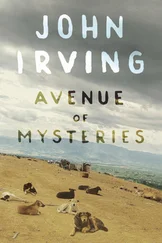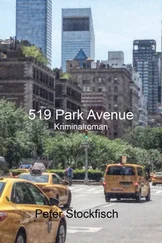“But you do have her address.”
The imperative question, that was Herreweghe’s forte. Pretend there’s a question mark coming, but at the last moment spit out a period. Aaron couldn’t recall ever getting an open question from this guy.
“No. How come?”
14023 Sunset Boulevard, Santa Monica, on the outskirts of Beverly Hills. He’d pulled that one off pretty neatly. The tone of their e-mails was not conducive to asking for her address outright, and anyway it would have spoiled all the spontaneity, the possibility of a surprise visit, for instance, or a chance meeting in front of her house — the idea appealed to him. Since she wasn’t listed in any phone books he had to think of something else, and came up with the clever idea of looking up Stol in San Francisco. Say what you like, but Stol at least had the decency to be listed, phone number and all, on the Internet. He would honestly be able to say he was just ringing about a practical question, but he also relished the subtle undertone of revenge this phone call would have.
Instead of Stol himself he got a boy of about seven on the line, who said his father was out golfing, giving him scant time to get used to the notion that those two had spawned. Is your mother at home then? he asked, theatrically naïve. “She lives in L.A.,” the boy answered. “Is your mother Joni Sigerius, by any chance?” He tried to sound as unfazed as possible, but after the kid’s affirmative reply he started right in about her address, too eagerly, for suspicion crept into the child’s voice, “Who are you?” the boy asked with touching directness. Slightly flustered, he repeated his name.
Herreweghe’s bluntness was like having a spade thrust squarely into your soul. Joni — he wanted to hear how she was, her name set off alarm bells all these years later. The man glanced at his watch. “I take it you’d like to look her up,” he said. “Tell me about the last time you two saw each other.”
He made the mistake of taking the question seriously, of succumbing to Herreweghe’s X-ray vision, of calling up the month of December 2000. This is a man who specializes in restraining orders. It was an episode he never dared to look back on, it was a dateless fog, an abstract mishmash of frightened impressions and manic low-flying passes over what he once thought of as a life — just give it a try, Herreweghe prodded (swimming instructor on the high-dive might have also suited him), when did you talk to her last, and how was it?
How was it … Did Herreweghe really want to know? Being nearly dead was enervating in a way. But it was Joni who came for him this time, Death took a rain check. How was it … the nosedive of December 2000. Is this really necessary? Now? I’m sitting here with a bag full of travel brochures. She had rescued him, that much was beyond a doubt. First she phoned him, from the States. Yes, that phone call too is lodged somewhere in his memory, it was a miracle she didn’t give up trying to reach him. What would have become of him without Joni? She had dumped him and then she came back.
In the meantime, sheets of ice had buckled over Roombeek. Freezing temperatures and early dusk were the result of fallout, the atmosphere was full of particles that wouldn’t settle, the fallout held in an indefinite suspension by the Coriolis effect. It looked threatening. The sun twinkled like a dying star above the bomb crater, but only sporadically, and ever more fleetingly. Abandoned steam shovels and bulldozers stared lifelessly at the epicenter, rusting away in peace. The cold entrenched itself. Not a soul dared to go outside, but everywhere there was a restless rustling: irritably waving conifers, loosened roof tiles that, moments later, spattered like grenades; the wind drove plastic bags and newspapers along the gutters. For weeks the lukewarm radiators in his house had rattled like mad, until the hammerklavier suddenly went silent, dead, cold, and his teeth took over the chattering. He heard doors slam in half-crumbling houses.
The flame in his multiburner was constantly on the verge of going out, he knelt down in front of the cast-iron mouth, the jointed black doors hung open like black crab claws, condensation escaped from the two copper ornamental knobs on the cover. Every so often he fed the flames with strips of cardboard he tore from the scattered boxes. Meantime he hastily thumbed through the book he had condemned to death, diagonally scanning the pages for anything he deemed worthy of a reprieve. The books printed on flimsy paper, laid open, burned like peat, at least as long as chair legs and cupboard shelves. The vital pages he tore out with a series of short jerks, folded them in half and stuffed them, coughing and gasping for breath, in old bank envelopes.
The gunpowder dust was almost unbearable. His eyes itched, black soot inflamed his windpipe. He had first smelled it months ago, a vague odor that reminded him of his earliest childhood, the smell of spent firecrackers, of cap guns, a smell that little by little became a stench; since winter had set in the fumes often hung visibly in his room, the sulfur molecules wafted in from outside, a chafing, heavy vapor that took over the entire house.
It frightened him. He would suddenly panic that he was choking. Sometimes he woke up with a parched throat, his mouth wide open like a coffee filter brimming with gunpowder. Occasionally it penetrated his lungs, his clothes, his consciousness so deeply that he forgot the stench altogether; he smelled only the separate elements — charcoal, sulfur, saltpeter, and finally nothing at all … was it gone? At those moments, when his mortal fear subsided, when he smelled nothing, he was calm. Everything was worse in the crater, he dared not go there anymore, it was bad for you, and cold as hell besides, even if he wore three layers of clothes — underwear, pajamas, a sweater, Sigerius’s suit, the judo jacket, a padded Gaastra coat, ski socks, hiking boots, mittens on top of gloves — even then, he froze.
So he stayed at the hearth despite the risks of an open fire; he knew that if the saltpeter concentration got too high, the whole neighborhood would be blown sky-high. Sometimes he wished it would happen: one single, devastating bang putting an end to everything, and yet he maintained his source of warmth as much as possible, small, compact, and kept his eye on the alarm the authorities had installed. When it did go off — a shrill electronic screech that frightened the bejesus out of him — he leapt up, stumbling and slithering into the kitchen, filled a frying pan with water, and dumped it over the flames.
It was a telephone. A plain old telephone. His telephone? Alarmed, he struggled up from the sofa where he had buried himself and waded toward the sound of the siren in the back room. Holding his breath, he peered at the closed curtain. What the—? The piece of plastic behind it was a potential intruder, he only had to lift it up and it would metamorphose. Something from outside would force its way in. That Limburg woman who had tried to interrogate him earlier? He groped behind the curtain and picked it up. Deep in the plastic, electrons teemed.
“Hello?” a voice said. He waited, listening acutely. “Aaron? It’s Joni. I’m calling from America.”
It was a stethoscope, Joni had tricked him into placing the instrument against his skull, for a brief moment he knew exactly how it worked — they had laid a transatlantic cable, miles and miles long, across the ocean floor, across pine forests and into his house, a military operation in order to diagnose him — but the image faded as quickly as it had materialized, maybe because the voice upset his frame of mind, a mental state that had settled like sediment at the bottom of an old wine bottle, one of her father’s bottles? The voice shook him hard, memories drifted to the surface, blurred his focus on his month-long battle against the elements.
Читать дальше












